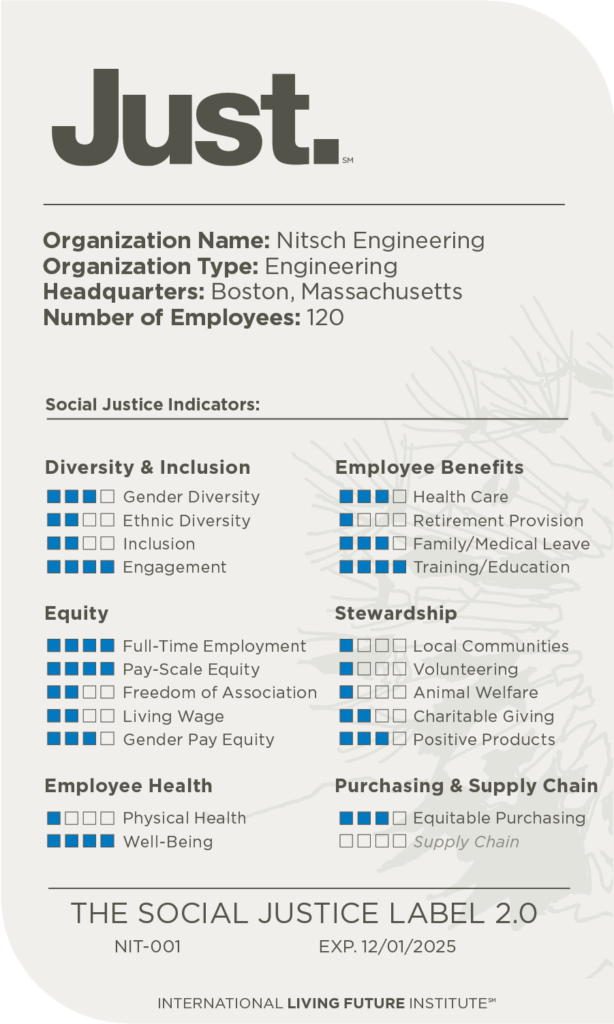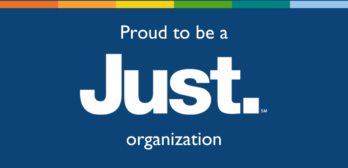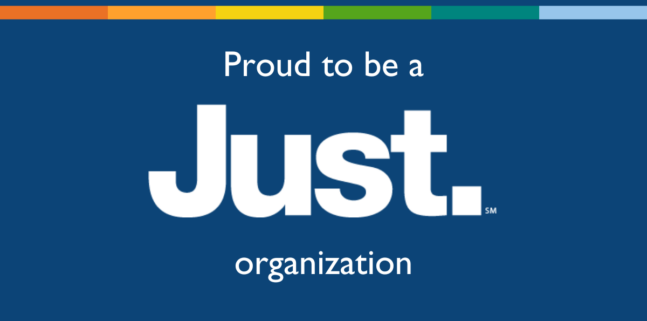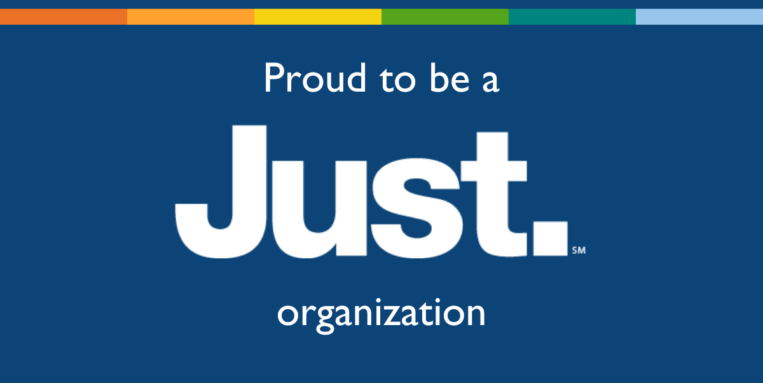When you’re working to drive equity, diversity, inclusion, and belonging within a company, there are always innumerable ways to improve. How do you know where to start? How do you stay focused? And how do you measure success?
The Just program was created specifically to help firms address these issues. Created by the International Living Future Institute (ILFI), the Just program is a voluntary disclosure tool for organizations to elevate internal discussions, policies, and procedures and create a common language and measurement framework for social justice and equity issues.
Rosa Romero, our Director of Administrative Services and Co-Chair of Nitsch’s Council for EDI said, “When Nitsch began auditing our organizational policies and practices in 2016, we did not have a mechanism to assess whether they were equitable, hold ourselves accountable, or benchmark ourselves. After a great deal of research by our Council for EDI, we decided to pursue the ILFI’s Just label, as we were confident that the clearly outlined and stringent international criteria set for social justice metrics would help us in our assessments.”
We’re thrilled to share that Nitsch is now a Just organization! Read on for more information about the process, our ratings, and our plans for the future!
Understanding Just
The Just label – a “nutrition label” for socially just and equitable organizations – acts as a transparency platform. Just organizations must disclose their operations in 22 specific social and equity indicators that are housed within six general categories:
- Diversity & Inclusion
- Equity
- Employee Health
- Employee Benefits
- Stewardship
- Purchasing & Supply Chain
Each indicator outlines measurable accountabilities at four levels of performance. Generally speaking, these ratings correlate to:
- Level 1 = Transparent
- Level 2 = Good
- Level 3 = Better
- Level 4 = Best
Nitsch’s Just label offers “a snapshot” about our progress across the six categories and 22 indicators as of September 2023.

To understand Nitsch’s rating level for each indicator, we invite you to review the official Just 2.0 Handbook that clarifies the specifics of each indicator’s requirements, and to review Nitsch’s profile on the Just website.
You’ll note that Nitsch opted out of providing information in the Supply Chain category. While organizations are allowed to opt out of up to six indicators (one per category), Nitsch chose to submit on as many as possible in order to truly understand our impact on our employees, communities, and the world.
Lisa Brothers, PE, ENV SP, LEED AP BD+C, President & CEO, noted, “Going through the Just process was truly enlightening. We’re proud that we’ve already taken what we learned to make some enhancements – for example, to our 401(K) retirement provision! – and we are already discussing other improvements to help us move up through the higher levels in other indicators when we renew our Just label in 2025.”
Planning for the Future
Addressing EDI is a systemic, multilevel, nonlinear, and iterative process that requires corporate commitment. The Just label has provided us with a framework that we can use to formalize and develop more progressive policies, hold ourselves accountable, celebrate our wins, and elevate our corporate commitment to change.
Thank you to our 2023 Council for EDI members for doing the work to obtain the Just label, particularly Lisa Brothers; Rosa Romero; Michelle Callahan, Project Manager; Lisa Dolan, Human Resources Manager; and Anna Luciano, Director of Marketing.
If you’d like to know more about our Just label, or the process we took to achieve it, please reach out to Rosa Romero.



